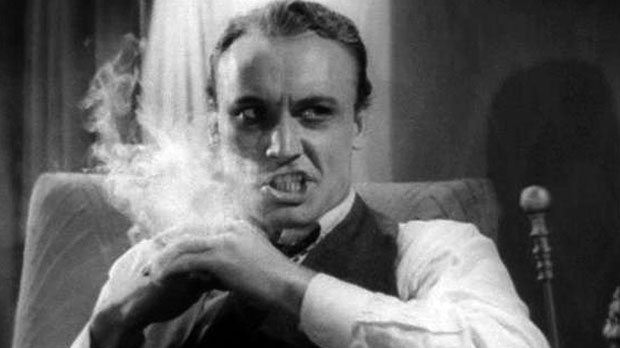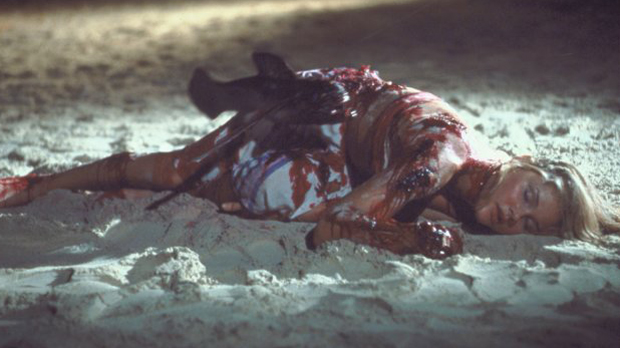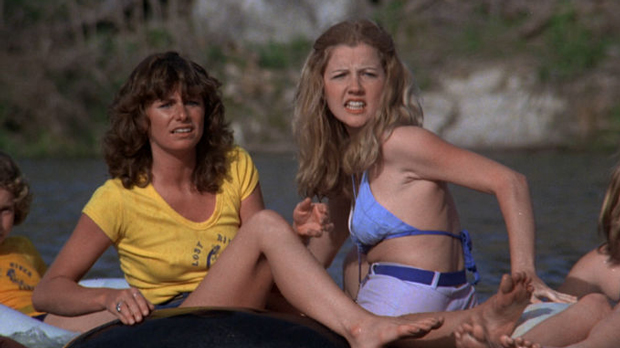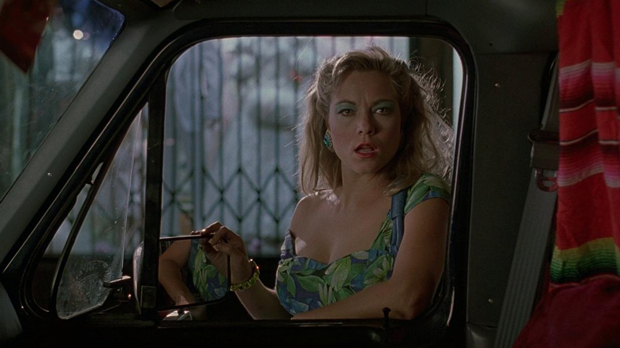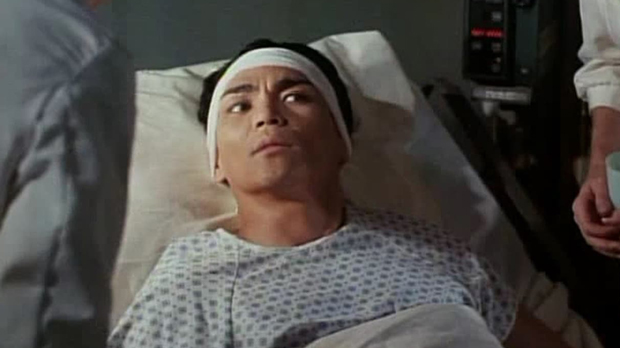 Reefer Madness (1936) Motion Picture Ventures/Drama RT: 67 minutes Not Rated (violence, drug abuse and mild sexual content involving teens) Director: Louis Gasner Screenplay: Paul Frankin Music: Abe Meyer Cinematography: Jack Greenhalgh Release date: N/A Cast: Dorothy Short, Kenneth Craig, Lillian Miles, Dave O’Brien, Thelma White, Carleton Young, Warren McCollum, Patricia Royale, Joseph Forte, Harry Harvey Jr. Box Office: N/A
Reefer Madness (1936) Motion Picture Ventures/Drama RT: 67 minutes Not Rated (violence, drug abuse and mild sexual content involving teens) Director: Louis Gasner Screenplay: Paul Frankin Music: Abe Meyer Cinematography: Jack Greenhalgh Release date: N/A Cast: Dorothy Short, Kenneth Craig, Lillian Miles, Dave O’Brien, Thelma White, Carleton Young, Warren McCollum, Patricia Royale, Joseph Forte, Harry Harvey Jr. Box Office: N/A
Rating: ****
If any movie advocates the use of marijuana, Reefer Madness is it! For a movie that’s supposed to discourage drug use by youths, it’s sure to have the opposite effect. It makes smoking pot look like so much fun, they’ll want to spark up a doob right then and there.
Although it’s classified as a drama, a warning film for concerned parents to be exact, it plays more like a comedy albeit an unintentional one. What’s so funny about it? A lot, that’s what. For one thing, the filmmakers appear to have no idea what smoking weed is all about. It’s absolutely NOT true that one puff will turn the user into a homicidal maniac. That’s pure fabrication meant to scare viewers away from experimenting with marijuana. It didn’t quite work out that way.
Originally titled Tell Your Children, Reefer Madness is actually aimed at parents who want to know about the latest scourge that was invading the high schools across the country. Financed by a church group, it quickly found fame and notoriety as an exploitation film. It didn’t scare audiences straight, it made them laugh hysterically. It’s clearly the work of an outsider, somebody who knows almost nothing about drug culture except what they read in the newspaper. Without going into too much personal detail, I can tell you that being stoned in real life is nothing like you see here.
The future cult classic is framed as a PTA meeting where the local high school principal (Forte) warns parents of the dangers of marijuana by relating a sordid tale of crime, addiction and murder that happened right there in their town. The central figure is a clean-cut lad named Bill Harper (Craig) who falls prey to the bad influence of Ralph Wiley (O’Brien), a sociopathic addict who funds his habit by luring potential new customers to the apartment of drug dealers Mae Coleman (White) and Jack Perry (Young) along with his siren girlfriend Blanche (Miles). It’s where all the cool kids go to party which entails dancing and smoking funny cigarettes.
Bill soon discovers he likes smoking weed more than playing tennis with his sweet girlfriend Mary Lane (Short) whose brother Jimmy (McCollum) also spends an inordinate amount of time at the apartment. His addiction is about to cause him more trouble than he bargained for. On the way back from an errand with Jack, the stoned teen accidentally runs over a pedestrian. He agrees to keep it quiet, but the worst is yet to come in this drama.
After learning Bill has ditched her to hang out at Mae’s, Mary shows up at the apartment where she’s almost immediately accosted by horny Ralph. Bill sees him attacking Mary and attempts to intervene. A fight ensues and Mary ends up getting shot in the back by Jack. Everybody present swears that Bill murdered her. He goes on trial while Jack and Mae try to cover their asses by keeping Ralph and Blanche at their apartment until it’s over. Ralph becomes more and more unraveled until he is completely consumed by reefer madness.
The acting in Reefer Madness is terrible. There’s not one iota of talent among all the players. The actors are forced to read some ludicrous dialogue like when Jack tells a nagging Mae, “Oh, why don’t you button up your lip? You’re always squawkin’ about something. You’ve got more static than a radio.” This is so typical of something that a man would say to woman in a bad 30s movie like this one. Or how about the opening crawl of the movie which states, “The motion picture you are about to witness may startle you. It would not have been possible, otherwise, to sufficiently emphasize the frightful toll of the new drug menace which is destroying the youth of America in alarmingly increasing numbers. Marijuana is that drug- a violent narcotic- an unspeakable scourge-The Real Public Enemy Number One!” Oh please!
Reefer Madness is melodrama at its highest (pun absolutely intended) with the unlikely events that unfold over 67 shocking minutes. My tongue is firmly in my cheek as I write these words. I find it difficult to believe that an all-American boy like Bill Harper would be so quick to descend into a world of drugs and debauchery. I also don’t believe a nice boy like him could be so easily seduced by a slut like Blanche. It must be the wacky weed.
Bill may be unbelievably idiotic, but Ralph takes the proverbial cake. He’s a first class loon when he’s high which is always. The scene that best illustrates his mental state is when Blanche plays the piano for him at the apartment. He keeps asking her to play faster. She’s pretty good, but she doesn’t hold a candle to the Kramer look-alike who pounds the keys at the local malt shop. That guy’s a real trip, especially when he sneaks off to the coat room to catch a “smoke”.
Although it cost about $100,000 to make (a lot of money in 1936), Reefer Madness is low-budget, no-frills filmmaking all the way. Its intentions are clearly altruistic, but they’re undone by the heinous overacting and heavy-handed delivery of its anti-drug message. One of the most memorable scenes is the closing address by Dr. Alfred Carroll (Forte) who concludes with “the next tragedy may be that of your daughter’s…. or your son’s…. or yours…. or yours…. [points at camera] OR YOURS!” This final emphatic declaration only increases the comedic value of the film. It takes away the last shred of credibility it might have had at one time.
Reefer Madness is one of the most hilarious unintentional comedies I’ve ever seen. The characters are ridiculous, the acting really bad, and the situations ludicrous. It’s an all-around bad movie, no question or room for debate. Yet I can’t dismiss it as a total failure. This is what cult movies are all about, the idea of a movie made in all seriousness only for it to come out as anything but. This is the main reason I gave it a four-star rating. It’s not an effective message movie, but it’s definitely something that will remain with the viewer longer than most serious anti-drug movies.
